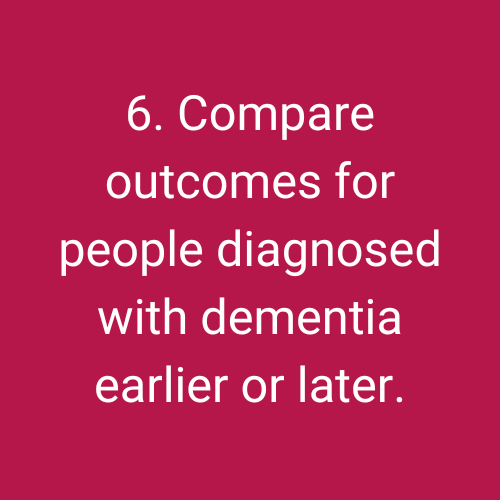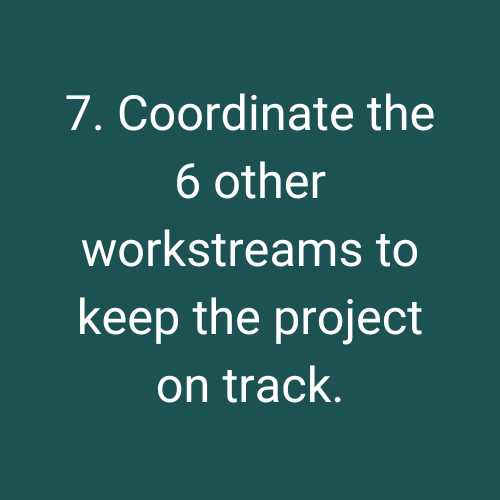
Led by: Brighton and Sussex Medical School, Newcastle University and King’s College, London in collaboration with NHS sites Sussex Partnership NHS Foundation Trust, South London and Maudsley NHS Foundation Trust and Gateshead Health NHS Foundation Trust.
Aims: We will recruit 900 people who have just been diagnosed with dementia, from different backgrounds. We will follow their progress for 3 years and collect detailed data on the services they use, the cost of their care, their health and their quality of life.
Would you like to share your experience of living with dementia and help improve the lives of others? Find out more about taking part.
Summary
We will recruit 900 people with dementia and their carers to take part in the study, up to 6 months following their diagnosis with dementia. We will visit them four times in three years. During these visits we will collect detailed information about their use of services, financial costs and outcomes such as quality of life (including health and happiness).
The participants will be from three areas of the country: Sussex/Surrey, Southeast London and Newcastle/Northeast England. We will include all people with a clinical diagnosis of any form of dementia whether they have a carer or not, to make sure all experiences are included. We will recruit more participants from some minority groups so we can find out more about the inequalities they experience in dementia care.
These groups include black African Caribbean and South Asian populations in Sussex and south London, as well as Lesbian, Gay, Bisexual, Transgender, and Queer (LGBTQ+) groups in Brighton.
Pairs of research workers (RWs) will visit each person with dementia and their carer (if they have one) at home, or another agreed place, soon after they join the project and afterwards at 12 months, 24 months and 36 months. The interviews will last no longer than two hours. If they are comfortable to do so, the person with dementia and carer will be interviewed by the research workers separately, on their own, to save time.


2. Investigate inequalities and barriers to dementia care

3. Compare costs and use of services with outcomes

4. Compare outcomes of self-funded with local authority funded care

5. Investigate the process of care planning and decision-making

6. Compare impact of late and early diagnosis on outcomes

7. Project coordination
Latest News

“It’s lovely that our participants feel they can open up about their worries and experiences”
Research Assistant Eva Tipping tells us about starting a role with DETERMIND on our new Covid-19 study. Why did you get involved in the DETERMIND project? When I finished my Cognitive Neuroscience MSc I knew that I was interested in working with individuals with dementia. Around this time my Grandad had been diagnosed with Mixed

“I have been encouraged to find many living well with dementia.”
Today’s post is by Research Assistant Jacob Reichental. Here Jacob explains why he got involved in the DETERMIND project and what his experience has been so far. Why I got involved in research I became interested in dementia research after working with these clients in older age crisis care. It became evident to me that

Eradicating barriers and promoting culturally appropriate dementia care
Research Assistant Anomita Karim tells us about her experience of being part of the DETERMIND team Why I got involved in DETERMIND When I was younger, my uncle was diagnosed with Alzheimer’s disease and it was a difficult transition for everyone to see. Once a really lively and strong willed man to gradually losing his

“People open up their homes to us and share emotional and personal stories”
This is the first post in a series where we talk to members of the DETERMIND team about their work. Research Assistant Rachel Nethercott is first up. Why did you get involved in the DETERMIND project?I was finishing up my Experimental Psychology MSc and even before my dissertation was submitted, I was rearing to get
